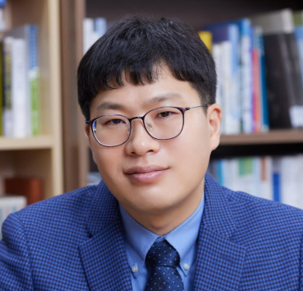
Our Speakers

Ulsan National Institute of Science and Technology (UNIST)
- jskim14@unist.ac.kr
- +82 522 172 830
About the speaker
Dr. Jeongseob Kim is an Associate Professor of Department of Civil, Urban, Earth, and Environmental Engineering at Ulsan National Institute of Science and Technology (UNIST).
He earned his doctoral degree in Design, Construction and Planning at the University of Florida and M.S. and B.S. at the Seoul National University. He served as a planner and consultant for various institutions, such as Inter-American Development Bank, Daegu Metropolitan Council, and Cheil Engineering, a private planning consulting firm.
His research interests lie in housing and community development, and smart cities with an emphasis on applications of urban big data analytics.
Presentation highlights
- Why is balanced regional development necessary?
- How has South Korea’s policy for balanced regional development evolved over 30 years?
- What lessons have been learned in the process of implementing this policy for regional balanced development?
Paper Abstract
Regional disparity and balanced development: Lessons from South Korea’s experiences
In the process of urbanization in South Korea, the concentration of population and economic activities in Seoul and its metropolitan area continues. onsequently, the gap between the Seoul Capital Region and non-capital regions is deepening. The central government has implemented various policies with the goal of achieving national balanced development, but the necessity and effectiveness of a balanced regional development agenda between the Seoul Capital Region and non-capital regions remain subjects of ongoing debate.
In this context, this study analyzes the regional disparities between the capital region and non-capital regions and evaluates the introduction and implementation of South Korea’s national balanced development policies since the 2000s. The Roh Moo-hyun administration, from 2003 to 2008, demonstrated a strong commitment to national balanced development through the relocation of central administrative functions and state-owned enterprises to non-capital regions. However, since 2008, the Lee Myung-bak administration has actively pursued regulatory relaxation and economic efficiency in the Seoul Capital Region, seeking balance through market mechanisms. This policy direction has persisted through several changes in administrations. Throughout this process, this study compares demographic, socioeconomic, and industrial characteristics between the Seoul Capital Region and non-capital regions and discusses the causes of regional disparities. Drawing from the lessons learned from South Korea’s policy experiences, this study can suggest policy implications for achieving balanced development between regions in a developing country.
Quick Links
Contact Info
- Ringroad 4, Thoi Hoa Ward, Ben Cat Town, Binh Duong Province, Vietnam
- (+84) 28 3820 3240
- auc2024@vgu.edu.vn
Newsletter
Stay updated with our latest news and exclusive offers – subscribe to our newsletter below

Copyright © 2023 by Vietnamese-German University. All rights reserved.